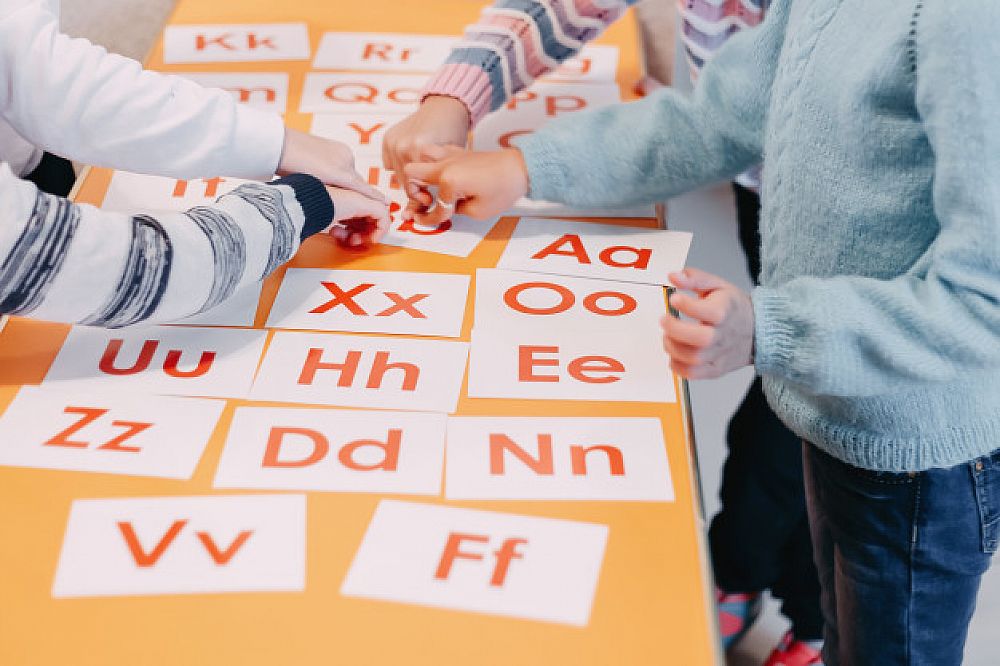5 Fun ESL Flashcard Games to Activate New English Skills

During the lessons, teachers usually use a variety of materials and teaching aids. One of the most common is flashcards. They have so many benefits:
Table of Contents
Are you ready to teach English abroad or online?
Check out what our course grads say in our many video testimonials!
- they are cheap and easy to make
- they can be used in all kind of groups and ages
- there are a lot of ways you can use them
- they can be used in almost every topic
This post was written by our TEFL certification graduate Oksana K. Please note that this blog post might not necessarily represent the beliefs or opinions of ITTT.
Flashcards can be used both for learning new vocabulary and for revision.Here are some of the activities with flashcards that I use working with children starting from 3 to 9 years old, mostly beginners. These activities can be changed a little and transformed into activities for older children.
1. Hit the flashcard
After the new flashcards were presented and drilled, you may lay down the cards on the carpet or the table so the children can easily reach them. Then you say the word out loud, and the children try to hit the correct flashcard as fast as they can. This activity is suitable for word recognition and memorization. This activity is perfect for small groups of children. It can be transformed a little bit. You can add a hammer. This time each child gets a chance to hit the flashcard with the hammer. They can pass the hammer after each word, do all the new terms, and then go to the next one.
2. What's missing?
This activity is good when the kids already know the words; otherwise, they won't play. So you lay out 4-5 flashcards ( can be more with older children) on the carpet, on the table, or even on the whiteboard. Then children should close their eyes. The teacher hides one flashcard. When the children open their eyes, they have to figure out what is missing. When children are used to this game, you may give them a chance to be teachers and give instructions.
3. Pass the envelope
A game used to revise the words that have already been learned. You put flashcards (they can be from different topics or the one you learned recently) in the envelope. Then you turn the music on, and children should pass the envelope clockwise from one to another. After the music stops, a child opens the envelope, takes the flashcard, and names it.
4. Am I?
This activity is suitable for revising. One child closes his/her eyes, all the other children choose a flashcard for him/her and put it on the forehead with the help of a headband a ribbon. When the child opens the eyes, he/she should guess what he/she is. Playing with higher-level students can use any yes/no questions to guess the word.
5. Jump and name
A good game for learning the new vocabulary. It can be used both in small and big groups. A teacher names the word. Children sit in a circle or a line. The teacher puts the flashcard above the children's heads one by one, and the students should jump to the card and name it. You may go a few times, making it faster. This way, children will drill the word and at the same time have the slot of fun.
Are you ready to teach English abroad or online?
Using flashcards in the class is both fun and effective. Meanwhile, the children enjoy the games they learn or revise the words. Transforming the games a bit, you can adjust them to all kinds of classes.
Apply now & get certified to teach english abroad!
Speak with an ITTT advisor today to put together your personal plan for teaching English abroad!
Send us an email or call us toll-free at 1-800-490-0531 to speak with an ITTT advisor today.
Related Articles:
- Top Tips for Teaching English as a Non-Native Speaker
- How to Build Your Teaching Career as a Non-Native English Teacher
- All the Documents You Will Need to Teach English Abroad
- The Impact of Positive Motivation on an ESL Classroom
- You're Never Too Old to Change Your Life and Do a TEFL Course | ITTT | TEFL Blog
- Getting Student Placement Right - The Best Desk Arrangements for EFL Students



